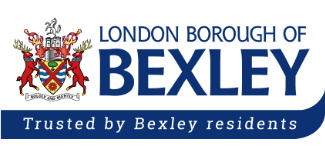Our staff are expected to treat individuals with courtesy, respect and fairness. Similarly, we expect our staff to be treated in the same way. We have a duty to protect the welfare and safety of staff. Where individuals behave unacceptably or unreasonably, we will refer to this policy.
Unacceptable behaviour
We understand that people may act out of character in times of distress or due to frustration. However if that frustration becomes aggression or abuse towards our staff, we won’t accept that.
Our staff have the right to undertake their work free from aggression or abuse and we expect them to be treated with courtesy and respect. Aggressive or abusive behavior may include:
- threats of physical harm or actual physical harm
- behaviour or language (verbal or written) that may cause staff to feel offended, afraid, threatened or abused
- insulting or degrading language
- personal grudges toward certain staff
- making serious allegations against staff without any evidence
We may also decide that comments aimed not at us but at third parties are unacceptable because of the effect that listening to or reading them may have on our staff.
Examples of unacceptable behaviour
- threats, verbal abuse, shouting, obscene / derogatory remarks and rudeness
- racist, sexist, homophobic, transphobic, disablist comments, or other harassment based on personal characteristics
- repeatedly demanding disciplinary action be taken against staff
- recording meetings or telephone conversations without consent
Unreasonable demands
A demand may be unreasonable if handling it could take up an excessive amount of staff time. As a publicly funded organisation, with limited resource to respond, this could stop other complaints from being handled in time.
We may decide a demand is unreasonable if, for example, you:
- demand responses within an unreasonable timescale
- insist on seeing or speaking to someone more senior or a particular member of staff when that is not possible
- keep changing what your complaint is about
- keep raising new or unrelated concerns
Examples of unreasonable demands
- demanding a response from the CEO or a senior manager and refusing to speak to anyone more junior
- demanding that nobody who is male / female deals with your complaint
- demanding to speak to someone on the same day when that person isn’t available
- demanding an immediate call back from a manager
Unreasonable frequency or duration of contact
The number of times you contact us, or the duration of each contact, can cause problems for our staff.
The level of contact may become unacceptable when the amount of time spent talking to an individual on the telephone, or responding to, reviewing and filing emails or written correspondence, means we struggle to deal with that complaint, or with other people’s complaints.
Examples of unreasonable levels of contact
- making a lot of calls in one day
- frequent emails about the same issue or repeatedly sending us emails with large amounts of information attached that is not needed when a matter is closed
- sending in new complaints before we have had an opportunity to address earlier complaints
- repeatedly asking us to look at the same issue when we have already addressed it through this process or another
- repeatedly making very long calls to us
How we manage unacceptable and unreasonable behaviour
If we feel behaviour is unacceptable or unreasonable, we may take any of the following actions:
- restrict or end contact on the matter
- restrict contact on all matters
- ask that all future contact is made through a third party advocate
- end contact entirely for a period of time
- report incidents to the police (for example, if violence has been threatened)
- take any other action that we consider appropriate (in extreme cases, this may include blocking calls and returning correspondence)
Where staff are considering the above or have had to take immediate action (for example, end a phone call), they should discuss this with their manager and / or Corporate Law and Governance. Corporate Law and Governance will then consider with staff which action is appropriate (if any). We will let the individual know about the action we are taking and the reason for it. This may include how long restrictions will be in place.
In making our decision, we may consider:
- how it affects our staff
- how it affects the individual (including their personal circumstances and any reasonable adjustments)
- the extent to which we are able to engage or assist
- the extent to which the process or subject matter has been exhausted
This process may be reconsidered by us if the individual commits to behaving with courtesy, respect and fairness and:
- some time has passed
- there is a more suitable alternative available
- we receive evidence that there were exceptional reasons for the behaviour






